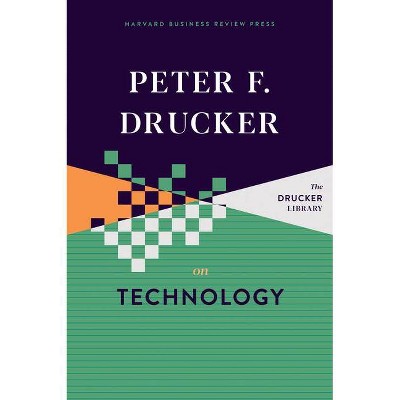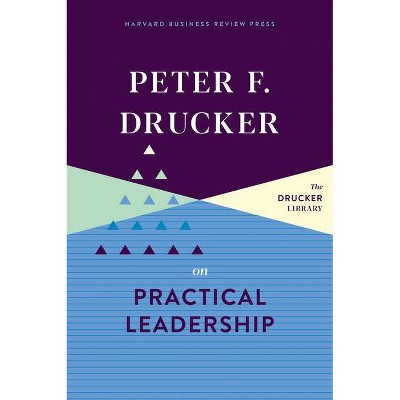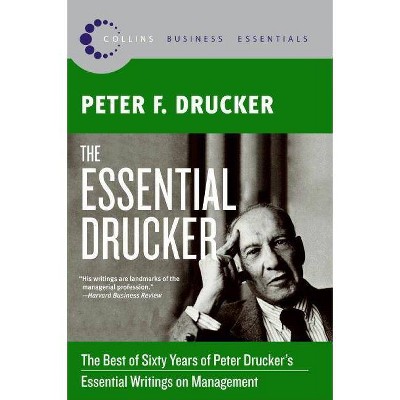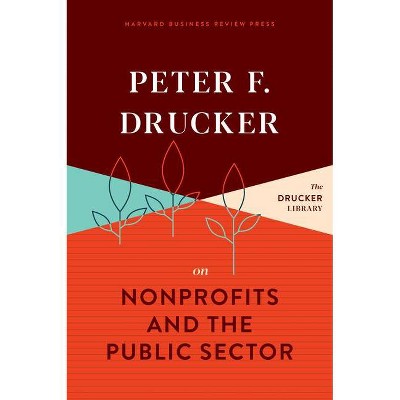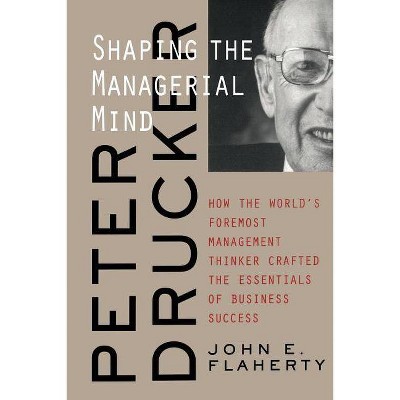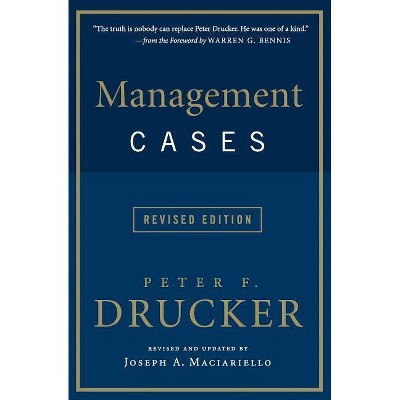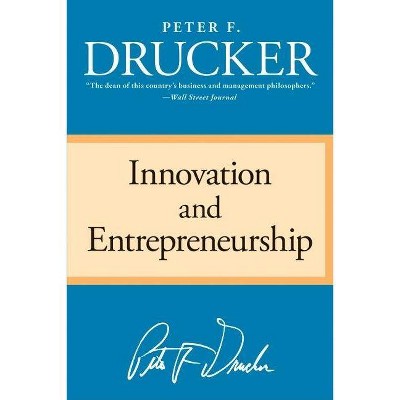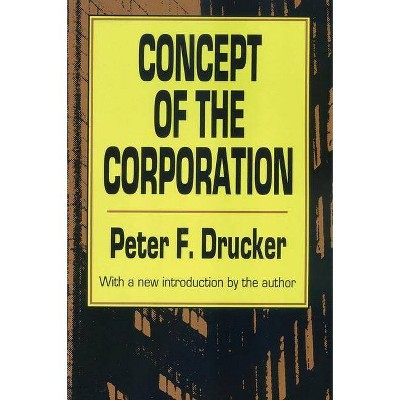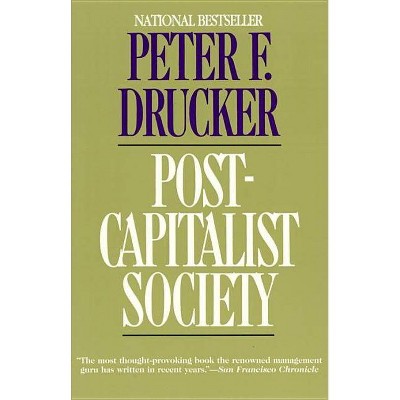Classic Drucker - by Peter F Drucker (Paperback)
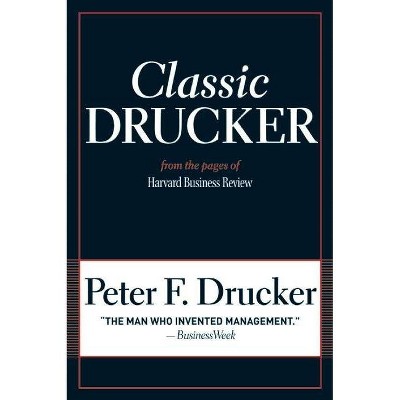
Similar Products
Products of same category from the store
AllProduct info
<p/><br></br><p><b> Book Synopsis </b></p></br></br>For nearly half a century, Peter Drucker inspired and educated managers--and powerfully shaped the nature of business--with his landmark articles in <i>Harvard Business Review</i>. Here, framed by a thoughtful introduction from HBR editor Thomas A. Stewart, is a priceless collection of Drucker's most significant work. Through his unique lens, Drucker traces the evolution of the great shifts in organizations and the role of managers in the ongoing effort to balance change with continuity. He paints a clear, comprehensive picture of management thinking and practice--as it was and as it will be. Revealing a celebrated thinker at his best, <i>Classic Drucker</i> offers a wealth of insights and practical guidelines for managers seeking to address today's thorniest organizational challenges.For example, you'll find selections on how to enhance your company's innovative prowess, make effective decisions, raise knowledge workers' productivity, remain engaged and productive during a long work life, know when the assumptions on which your business was founded must change, and get the data you need to execute your company's competitive strategy. Doing what's right for your company will always be challenging. But thanks to the clear focus, broad vision, and practical wisdom of Peter Drucker, the task is now a little less daunting.<p/><br></br><p><b> About the Author </b></p></br></br><p><b>Peter F. Drucker</b> (1909-2005) is one of the best-known and most widely influential thinkers on the subject of management theory and practice, and his writings contributed to the philosophical and practical foundations of the modern corporation.</p><p>Often described as the father of modern management theory, Drucker explored how people are organized across the business, government, and nonprofit sectors of society; he predicted many of the major business developments of the late twentieth century, including privatization and decentralization, the rise of Japan to economic world power, the critical importance of marketing, and the emergence of the information society with its implicit necessity of lifelong learning. In 1959, Drucker coined the term knowledge worker and in his later life considered knowledge-worker productivity to be the next frontier of management.</p><p>Peter Drucker died on November 11, 2005, in Claremont, California. He had four children and six grandchildren.</p><p>You can find more about Peter F. Drucker at cgu.edu/center/the-drucker-institute.</p>
Price History
Price Archive shows prices from various stores, lets you see history and find the cheapest. There is no actual sale on the website. For all support, inquiry and suggestion messages communication@pricearchive.us
